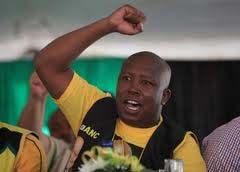I pick my team on merit: Butcher
ESPNcricinfo. Firdose Moonda: The batsmen seem to have matured a great deal. What do you attribute that to?
Alan Butcher: They have worked harder and been driven harder. We had a winter training camp and they were coming in early, at around 7am, and netting for an hour or two, and some still do that on match days. They are hitting a lot more balls. They had to gain some confidence in their own ability and iron out the technical flaws.
Basically they have more belief, and the more belief you have that you can spend time in the middle and succeed, the more you will. Previously they didn’t have that at all, so they would freeze in the middle or get out, because that’s much easier – to get out and sit in the change room. It’s tough out there, and now they have more of the mindset to cope with that.
FM: It’s exciting to find young, enthusiastic bowling talent like Brian Vitori and Kyle Jarvis. How do you plan to manage them going forward?
AB: They are only playing one Test at a time so the workload won’t be too high. But we still have to look after them and make sure they don’t over-bowl. We will definitely rotate them, and we are lucky that we can do that now, so we don’ have to flog one guy until he is finished. In general, they are more attacking now than they have been and they have worked on techniques and learned new skills. As we saw with Vits [Vitori] in the Pakistan Test match, there is still no substitute for experience. This pitch didn’t bounce and he had to find different ways to adjust. It’s a learning process and some days they will take a pasting, but they will learn.
Look at Chris [Mpofu] – he was hammered in South Africa last year but he came back and worked on a slower ball and did well again. I think he had a very good World Cup.
FM: You talk about being satisfied with the depth in the pool of national players. Does that mean you are pleased with the quality of the franchise system and confident it will produce new talent regularly?
AB: I didn’t see a lot of franchise cricket the seasons before last, but people say that last season was better than those, so things must be improving. I did a few miles last season, going to some games in different areas, and the ones I saw were all competitive. There were no walkover games. We were able to have a camp with 30 players who were in line for national honours – there were some young fast bowlers who we wanted to fast-track, and they did really well. I’d say it’s doing well. What’s important is that we continue the process of getting the squad together in camps to prepare. We only really started that before the World Cup, when we had nine days in Dubai, but before that this team never had enough preparation time.
FM: Before the Pakistan Test you showed the squad the documentary Fire in Babylon. How did that inspire them, and what other tools have you used?
AB: After the Bangladesh series we had a few days at Heath Streak’s farm just outside Bulawayo, and we started by watching Fire in Babylon. The guys were just spellbound. There were so many levels on which they could relate to it – the racial aspect, the political aspect, and the quick bowling thing. They really enjoyed it.
We also played an orienteering competition, where we sent them out into the bush to photograph wild animals, and we had them do some small plays on how they see Zimbabwean cricket. We had some excellent contributions; there are some very good actors here. Last year, prior to the tri-series, we got in Dale Williamson, who works at Gary Kirsten’s academy, and he was really good. I would like to use him more often. We’re lucky because everyone gets on. There is no need for any social engineering.
FM: It’s interesting you should say that because Zimbabwe have enjoyed a rapid rate of transformation, which was, at first, somewhat forced. How do you feel about transformation now?
AB: What I will say upfront is that we don’t get any interference from anyone regarding quotas. We pick the team on merit. Every black person I have spoken to about the game has agreed that that is the way the team should be handled and that everyone who is in there must be good enough.
FM: The administration has a reputation for infighting at the management level. As someone coming in from the outside, what was your experience of that, and are you comfortable with the way the administration is handling the game, especially with allegations of wrongdoing still surfacing occasionally?
AB: I don’t get any sense that there is corruption. Like any administration that has to work under severe financial strain, there are problems.
Having said that, I have always been paid on time and we are not the only ones with those problems. New Zealand had to defer payments recently, and West Indies are always in some sort of turmoil.
FM: What are the goals going forward?
AB: We have two series against New Zealand, and I would like us to be competitive in both.











Comments